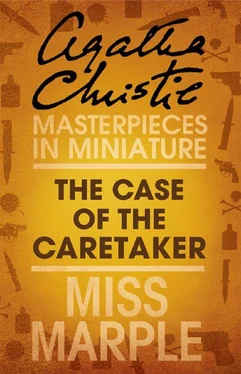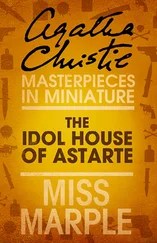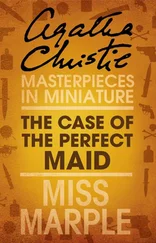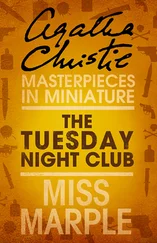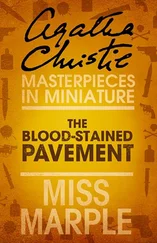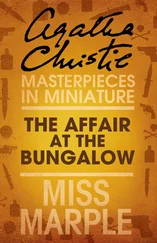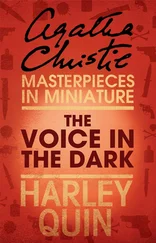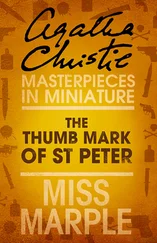The Case of the Caretaker
A Short Story
by Agatha Christie

Copyright
Published by HarperCollins Publishers Ltd 1 London Bridge Street London SE1 9GF
www.harpercollins.co.uk
Copyright © 2011 Agatha Christie Ltd.
All rights reserved under International and Pan-American Copyright Conventions. By payment of the required fees, you have been granted the nonexclusive, nontransferable right to access and read the text of this e-book on-screen. No part of this text may be reproduced, transmitted, downloaded, decompiled, reverse-engineered, or stored in or introduced into any information storage and retrieval system, in any form or by any means, whether electronic or mechanical, now known or hereinafter invented, without the express written permission of HarperCollins e-books.
EPub Edition © 2011 ISBN: 9780007452057
Version: 2017-04-18
Contents
Cover
Title Page The Case of the Caretaker A Short Story by Agatha Christie
Copyright
The Case of the Caretaker
Related Products Конец ознакомительного фрагмента. Текст предоставлен ООО «ЛитРес». Прочитайте эту книгу целиком, купив полную легальную версию на ЛитРес. Безопасно оплатить книгу можно банковской картой Visa, MasterCard, Maestro, со счета мобильного телефона, с платежного терминала, в салоне МТС или Связной, через PayPal, WebMoney, Яндекс.Деньги, QIWI Кошелек, бонусными картами или другим удобным Вам способом.
About the Publisher Конец ознакомительного фрагмента. Текст предоставлен ООО «ЛитРес». Прочитайте эту книгу целиком, купив полную легальную версию на ЛитРес. Безопасно оплатить книгу можно банковской картой Visa, MasterCard, Maestro, со счета мобильного телефона, с платежного терминала, в салоне МТС или Связной, через PayPal, WebMoney, Яндекс.Деньги, QIWI Кошелек, бонусными картами или другим удобным Вам способом.
The Case of the Caretaker
‘The Case of the Caretaker’ was first published in Strand Magazine, January 1942, and then in the USA in Chicago Sunday Tribune, 5 July 1942.
‘Well,’ demanded Doctor Haydock of his patient. ‘And how goes it today?’
Miss Marple smiled at him wanly from pillows. ‘I suppose, really, that I’m better,’ she admitted, ‘but I feel so terribly depressed. I can’t help feeling how much better it would have been if I had died. After all, I’m an old woman. Nobody wants me or cares about me.’
Doctor Haydock interrupted with his usual brusqueness. ‘Yes, yes, typical after-reaction of this type of flu. What you need is something to take you out of yourself. A mental tonic.’
Miss Marple sighed and shook her head.
‘And what’s more,’ continued Doctor Haydock, ‘I’ve brought my medicine with me!’
He tossed a long envelope on to the bed. ‘Just the thing for you. The kind of puzzle that is right up your street.’
‘A puzzle?’ Miss Marple looked interested.
‘Literary effort of mine,’ said the doctor, blushing a little. ‘Tried to make a regular story of it. “He said,” “she said,” “the girl thought,” etc. Facts of the story are true.’
‘But why a puzzle?’ asked Miss Marple.
Doctor Haydock grinned.
‘Because the interpretation is up to you. I want to see if you’re as clever as you always make out.’
With that Parthian shot he departed.
Miss Marple picked up the manuscript and began to read.
‘And where is the bride?’ asked Miss Harmon genially.
The village was all agog to see the rich and beautiful young wife that Harry Laxton had brought back from abroad. There was a general indulgent feeling that Harry – wicked young scapegrace – had had all the luck. Everyone had always felt indulgent towards Harry. Even the owners of windows that had suffered from his indiscriminate use of a catapult had found their indignation dissipated by young Harry’s abject expression of regret. He had broken windows, robbed orchards, poached rabbits, and later had run into debt, got entangled with the local tobacconist’s daughter – been disentangled and sent off to Africa – and the village as represented by various ageing spinsters had murmured indulgently. ‘Ah, well! Wild oats! He’ll settle down!’
And now, sure enough, the prodigal had returned – not in affliction, but in triumph. Harry Laxton had ‘made good’ as the saying goes. He had pulled himself together, worked hard, and had finally met and successfully wooed a young Anglo-French girl who was the possessor of a considerable fortune.
Harry might have lived in London, or purchased an estate in some fashionable hunting county, but he preferred to come back to the part of the world that was home to him. And there, in the most romantic way, he purchased the derelict estate in the dower house of which he had passed his childhood.
Kingsdean House had been unoccupied for nearly seventy years. It had gradually fallen into decay and abandon. An elderly caretaker and his wife lived in the one habitable corner of it. It was a vast, unprepossessing grandiose mansion, the gardens overgrown with rank vegetation and the trees hemming it in like some gloomy enchanter’s den.
The dower house was a pleasant, unpretentious house and had been let for a long term of years to Major Laxton, Harry’s father. As a boy, Harry had roamed over the Kingsdean estate and knew every inch of the tangled woods, and the old house itself had always fascinated him.
Major Laxton had died some years ago, so it might have been thought that Harry would have had no ties to bring him back – nevertheless it was to the home of his boyhood that Harry brought his bride. The ruined old Kingsdean House was pulled down. An army of builders and contractors swooped down upon the place, and in almost a miraculously short space of time – so marvellously does wealth tell – the new house rose white and gleaming among the trees.
Next came a posse of gardeners and after them a procession of furniture vans.
The house was ready. Servants arrived. Lastly, a costly limousine deposited Harry and Mrs Harry at the front door.
The village rushed to call, and Mrs Price, who owned the largest house, and who considered herself to lead society in the place, sent out cards of invitation for a party ‘to meet the bride’.
It was a great event. Several ladies had new frocks for the occasion. Everyone was excited, curious, anxious to see this fabulous creature. They said it was all so like a fairy story!
Miss Harmon, weather-beaten, hearty spinster, threw out her question as she squeezed her way through the crowded drawing-room door. Little Miss Brent, a thin, acidulated spinster, fluttered out information.
‘Oh, my dear, quite charming. Such pretty manners. And quite young. Really, you know, it makes one feel quite envious to see someone who has everything like that. Good looks and money and breeding – most distinguished, nothing in the least common about her – and dear Harry so devoted!’
Читать дальше
